India amused by '14-second staring' rule
- Published
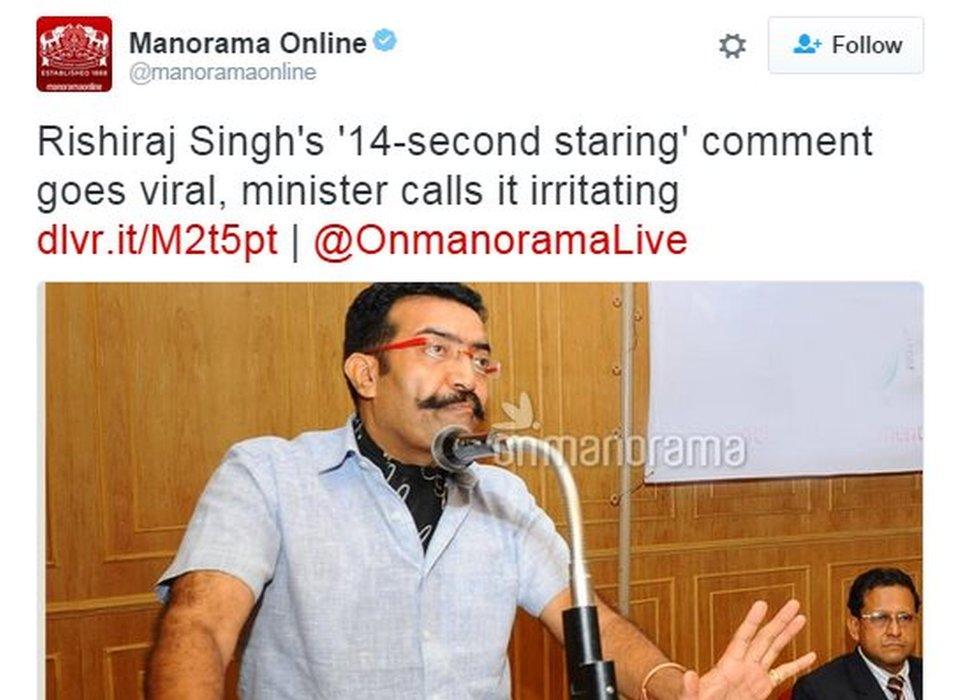
Kerala media outlets like Manorama Online have given prominent coverage to Mr Singh's statement
Social media users have reacted with amused bewilderment after an official said it was illegal for a man to stare at a woman for more than 14 seconds.
No such law exists, but Rishiraj Singh, the excise commissioner in the southern Indian state of Kerala, said such a stare could get a man jailed.
People online asked what might happen if a man blinked, and some quipped that sales of sunglasses would go up.
But some users said Mr Singh had raised a valid point about women's safety.
"A case can be filed against men who stare at women for more than 14 seconds," Mr Singh said in Kochi on Saturday.
The video of his statement has gone viral in the state, sparking humorous reactions and memes.
Some social media users have used dialogues from popular films in Malayalam, the language spoken in the state, to create memes.
Most users have posted memes on popular comedy Facebook pages like Troll Malayalam and ICU.
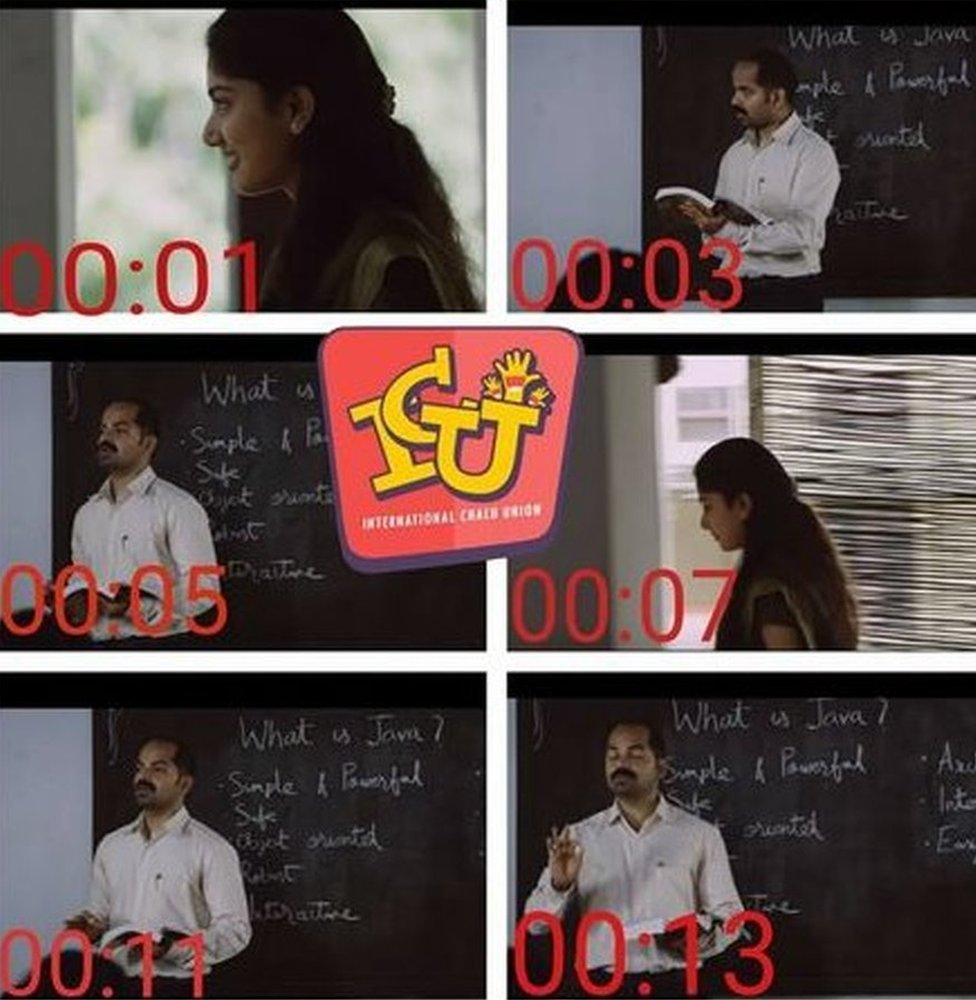
This meme implies that a teacher must shut his eyes every 13 seconds to avoid arrest.
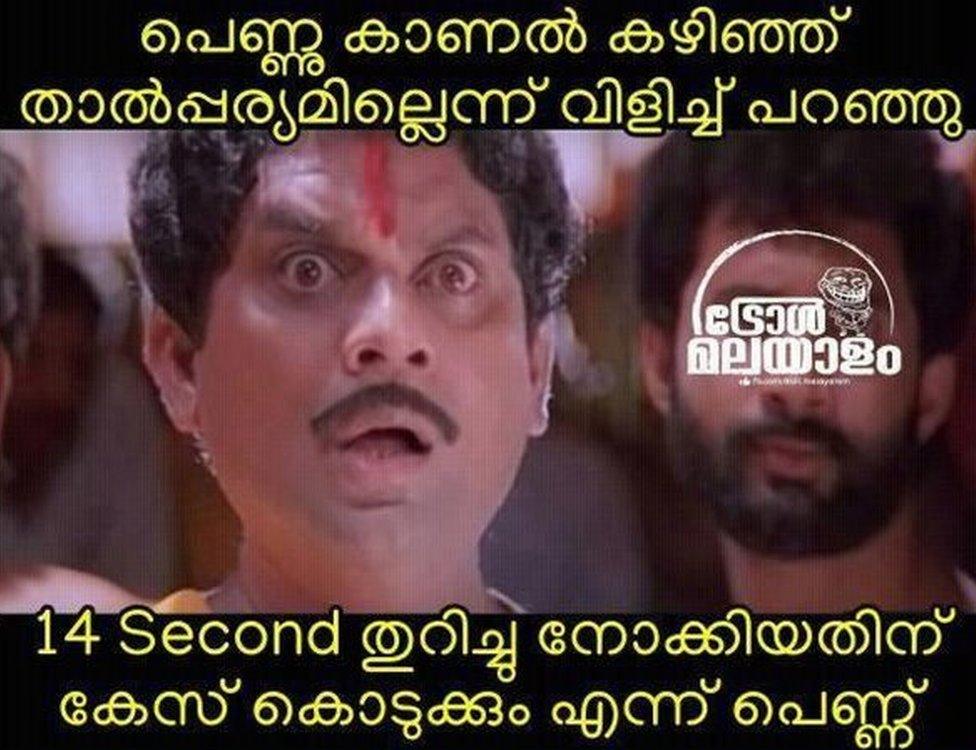
"Just informed a girl that I didn't like her after meeting her for marriage. She threatened to file a case for staring at her for 14 seconds."
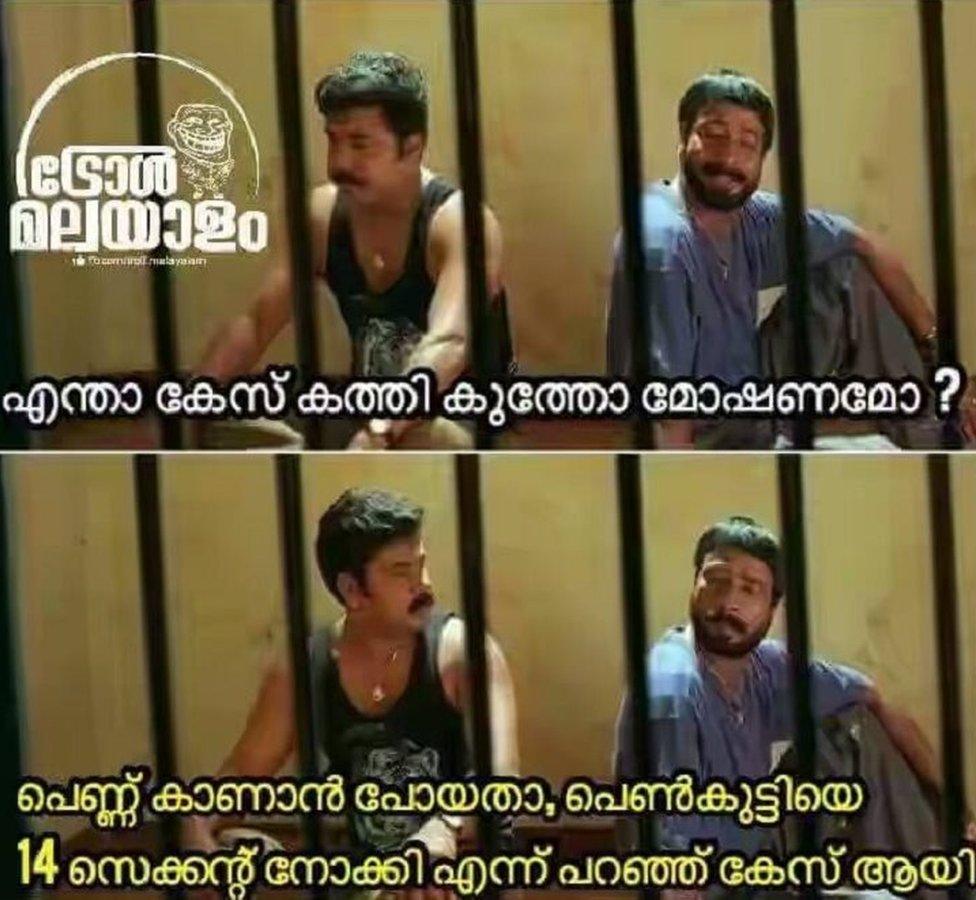
"Bro, what is your crime, stabbing or theft?". "Just went to see a girl for marriage, got convicted for looking at her for 14 seconds."
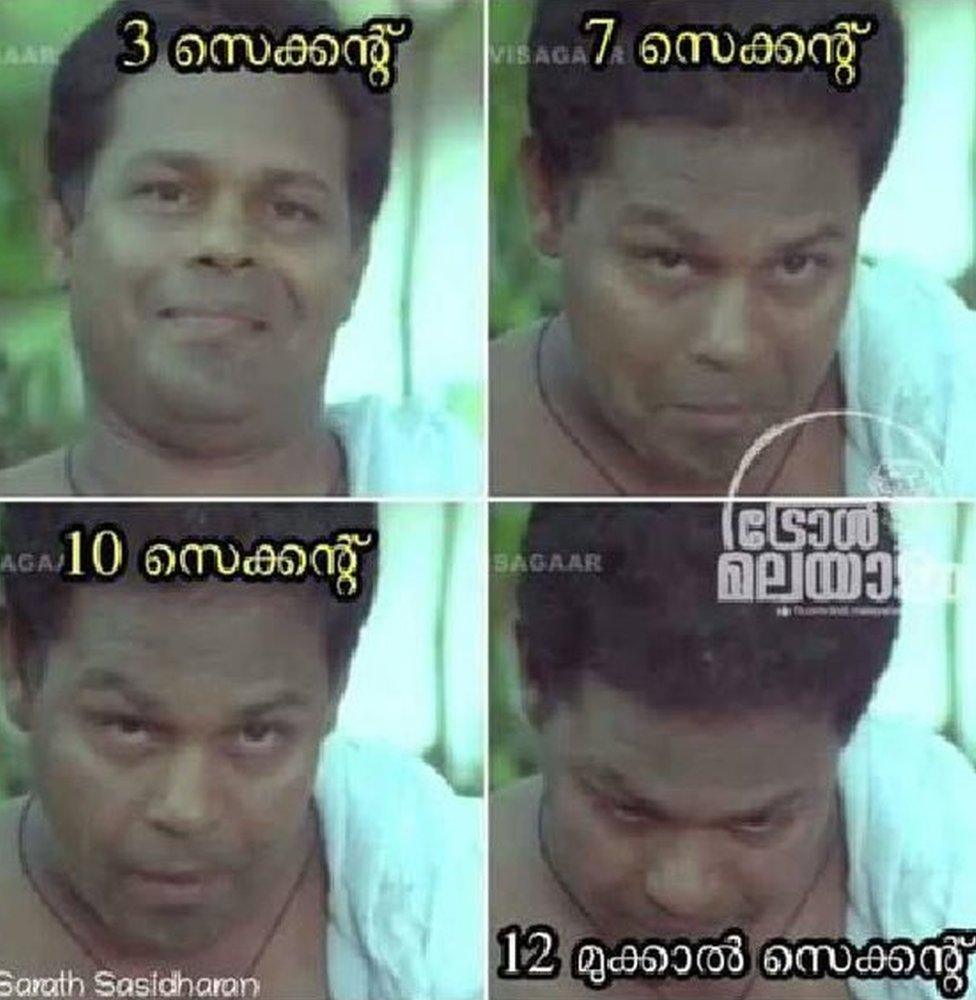
This meme shows how to time your gaze.
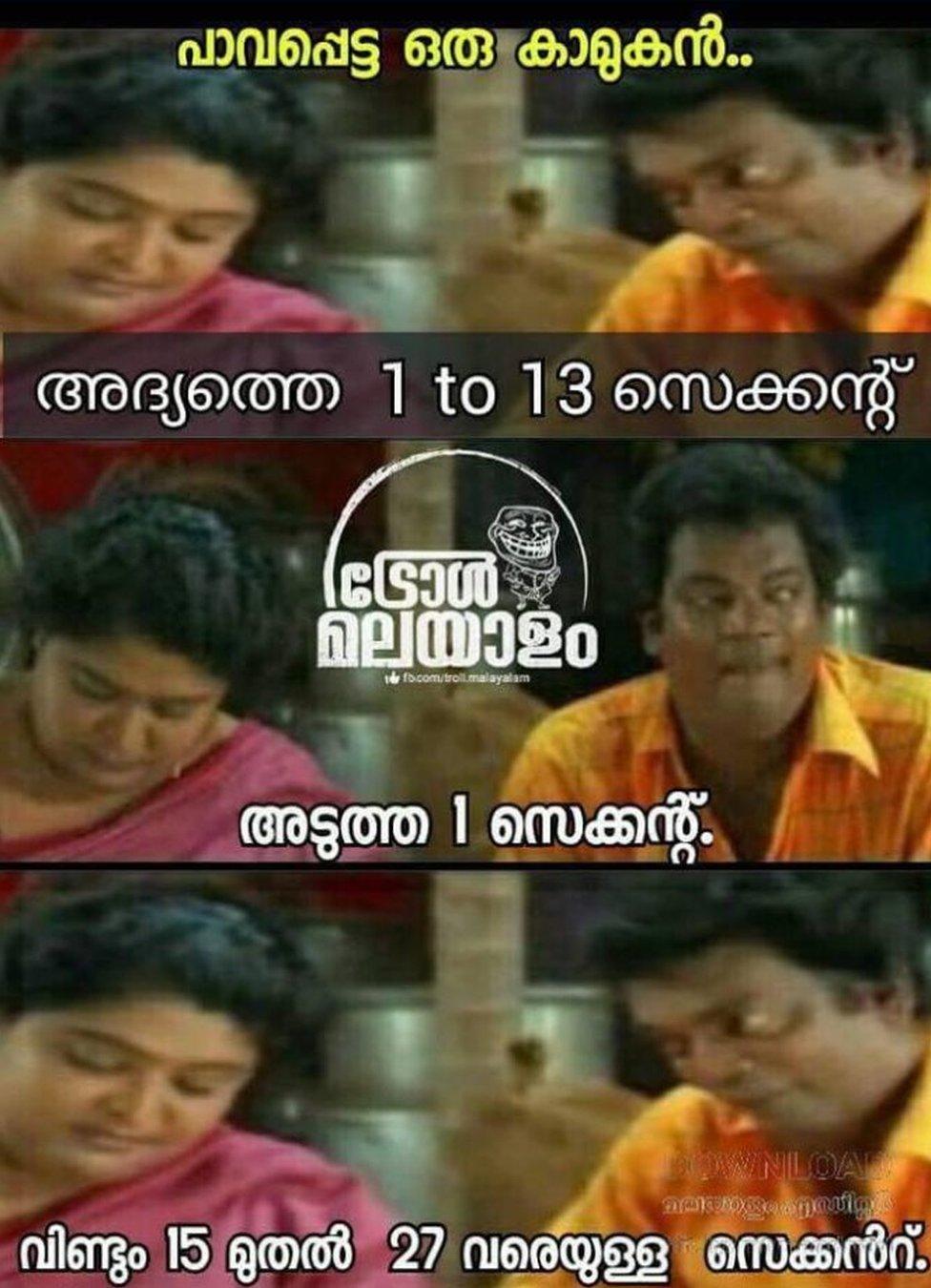
This meme, titled "poor lover", shows how you should interact with your girlfriend to avoid arrest.
Some social media users, however, have supported Mr Singh for raising an important issue of women's safety.
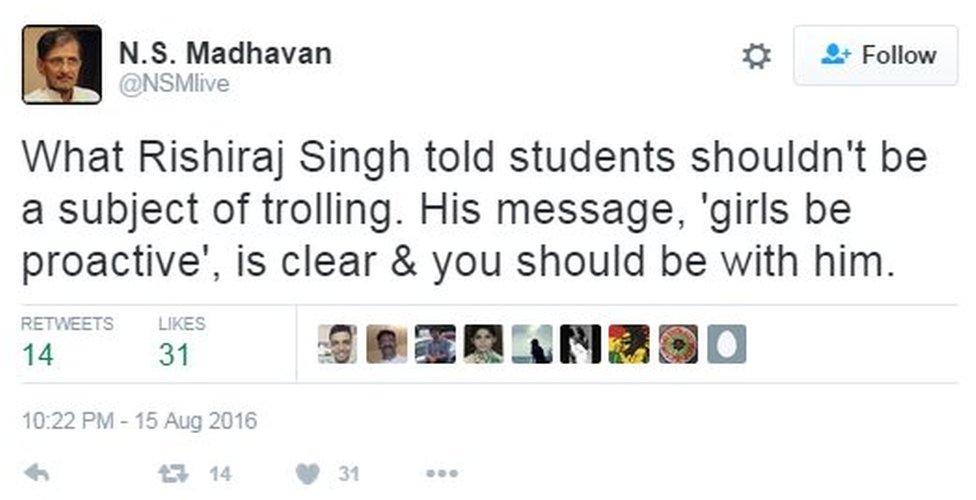
Reporting by BBC Monitoring's Zainul Abid